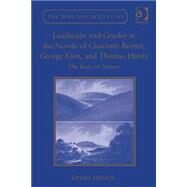Landscape and Gender in the Novels of Charlotte Brontd, George Eliot, and Thomas Hardy: The Body of Nature
, by Henson,Eithne- ISBN: 9781409432142 | 1409432149
- Cover: Hardcover
- Copyright: 11/28/2011
Examining a wide range of representations of physical, metaphorical, and dream landscapes in Charlotte Brontė, George Eliot, and Thomas Hardy, Eithne Henson explores the way in which gender attitudes are expressed, both in descriptions of landscape as the human body and in ideas of nature. Henson discusses the influence of eighteenth-century aesthetic theory, particularly on Brontė and Eliot, and argues that Ruskinian aesthetics, Darwinism, and other scientific preoccupations of an industrializing economy, changed constructions of landscape in the later nineteenth century.Henson examines the conventions of reading landscape, including the implied expectations of the reader, the question of the gendered narrator, how place defines the kind of action and characters in the novels, the importance of landscape in creating mood, the pastoral as a moral marker for readers, and the influence of changing aesthetic theory on the implied painterly models that the three authors reproduce in their work. She also considers how each writer defines the concept of Englishness against an internal or colonial Other. Alongside these concerns, Henson interrogates the ancient trope that equates woman with nature, and the effect of comparing women to natural objects or offering them as objects of the male gaze, typically to diminish or control them. Informed by close readings, Henson's study offers an original approach to the significances of landscape in the 'realist' nineteenth-century novel.







